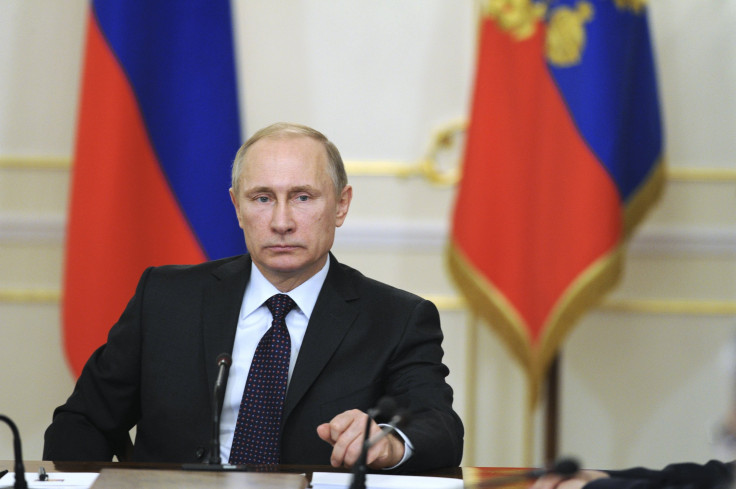Putin Has Asperger's Syndrome? Pentagon Study Found Russian Leader Might Have Autistic Disorder

Russian President Vladimir Putin may have Asperger's syndrome. That's what a 2008 Pentagon think tank study concluded, according to an exclusive report Wednesday from USA Today. Putin may have "an autistic disorder which affects all of his decisions," the government report found.
Putin's "neurological development was significantly interrupted in infancy," wrote Brenda Connors, a movement expert at the U.S. Naval War College in Newport, R.I. "The Russian president carries a neurological abnormality."
Connors was contracted for the study by the Office of Net Assessment, an internal Pentagon think tank focused on long-term military strategy. USA Today obtained the report via a Freedom of Information Act request. It was not known whether the government acted on its findings.
Putin has recently butted heads with Western leaders over Russia's unilateral annexation of Crimea from Ukraine. The European Union and United States have also passed sanctions against Russia over Putin's support for Russian-speaking separatists in eastern Ukraine.
The findings of the report were made public last year, but the Pentagon did not previously release the actual document. U.S. officials could foster better relations with "the information-craving" Putin with "meaty policy research and white papers," Connors recommended. "Putin the private decision-maker cannot be expected to enter into public exchanges with others on information interpretation or a final course of action."
Meanwhile, President Barack Obama's nominee for defense secretary said Wednesday he could support arming Ukraine against Russia. The White House has shied away from providing weapons to the Kiev government to defeat the Russian-backed separatists. "I'm very much inclined in that direction," Ashton Carter said at his confirmation hearing before the Senate Armed Services Committee, according to the Chicago Tribune.
Former Secretary of State Henry Kissinger, however, told a congressional committee last week that he's "uneasy about beginning a process of military engagement without knowing where it will lead us and what we'll do to sustain it."
© Copyright IBTimes 2024. All rights reserved.












